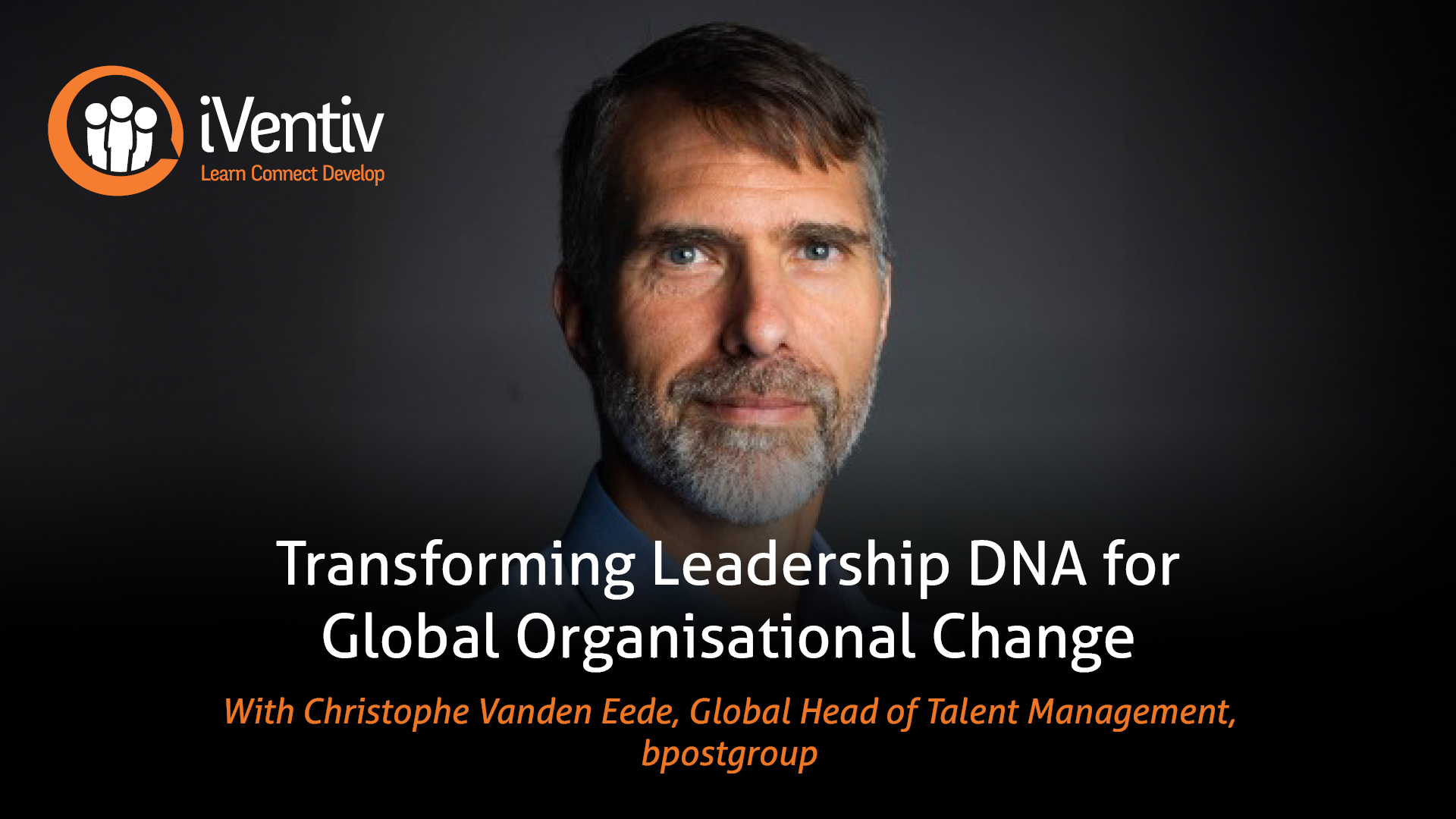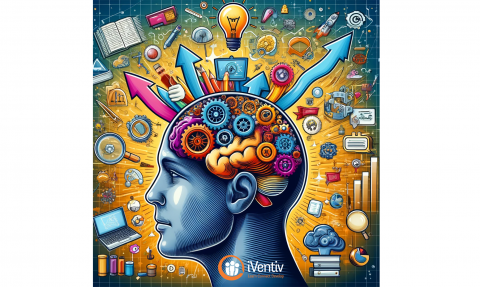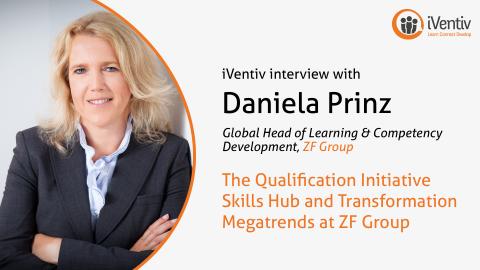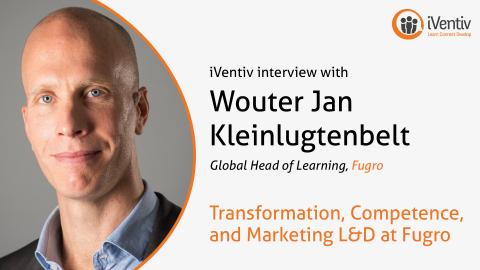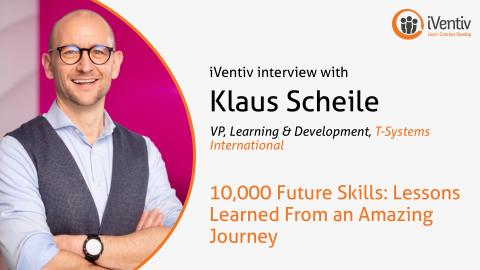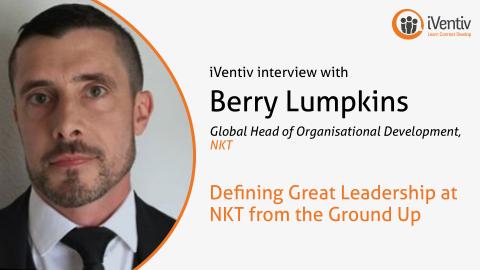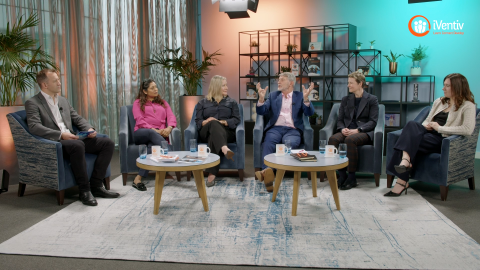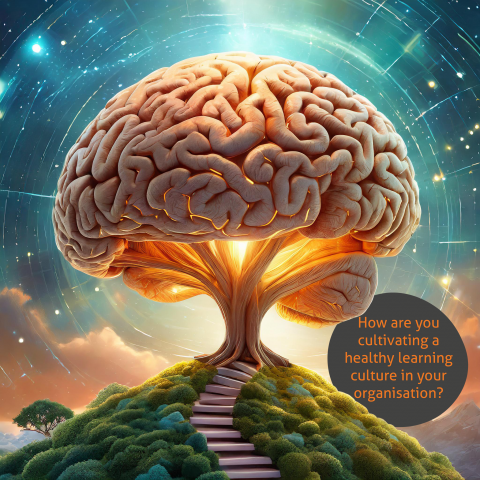Submitted by Kerry Summers on
From Mail to Parcels: Why Transformation is Urgent
bpostgroup’s historic business model – state-backed and centred on mail – has faced a sharp 20% annual decline in demand. Compounded by a legacy cost structure and competition from agile global players in parcel delivery, Christophe summarised the challenge: “This company is really, let’s say, with the back against the wall. If they are not changing, they will not be relevant anymore in the next couple of years.”
The reality? A complete organisational overhaul was non-negotiable. But rather than approaching transformation through process or structure alone, Christophe zeroed in on the need to rebuild the company's leadership ethos.
Changing Leadership DNA: A Behaviour-Driven Approach
“It’s about communication, role modelling, steering performance. That’s where you need to change the DNA of the company – and that goes through changing the DNA of leadership.” - Christophe Vanden Eede
Christophe and his team selected MIT’s 4-CAP Leadership Model – a framework built from meta-analyses of successful organisational transformations. The model, Christophe tells us, identifies four critical capacities:
- Visioning
- Sense-Making
- Relating (Connecting)
- Inventing (Innovation)
Yet rather than treat these as buzzwords, Christophe took the time to co-create practical behaviours under each dimension with his leadership teams.
“We sat with all our senior managers and asked: What behaviours do we want more of? What do we already have and want to keep? And what needs to go? From that, we crafted observable behaviours, five per dimension, that every leader would be held accountable for.” - Christophe Vanden Eede
This process marked a shift from abstract values to concrete expectations, making it possible to track, assess and support change at scale.
What makes bpostgroup’s approach so compelling is how Christophe ensures the model isn’t just a slide on a PowerPoint. Leadership behaviours are now:
- Assessed in recruitment – candidates are evaluated for alignment with the leadership DNA
- Integrated into performance management – annual goals include leadership development objectives
- Embedded in talent reviews and succession planning
- Rolled out at all leadership levels – from senior leaders to first-time managers and even individual experts
“We don’t believe in forcing everyone through the same six-week programme. Instead, we give them a menu of interventions, then hold them accountable for selecting and acting on what’s relevant.” - Christophe Vanden Eede
By prioritising relevance and timing, Christophe says, the initiative avoids fatigue while keeping momentum strong.
Momentum-Based Learning Interventions
Rather than blanket training, Christophe’s team aligns interventions with business moments:
- When launching a new five-year strategy, they focused on visioning: helping leaders build and communicate their team’s direction
- As change fatigue set in, they emphasised motivation, launching sessions on the ABC model of motivation (Autonomy, Belonging, Competence)
- As innovation became critical, they turned to behaviours that could focus and channel creative energy productively
This rolling, adaptive approach, he says, allows the leadership culture at bpostgroup to evolve in sync with the business, not in parallel to it.
Role-Modelling and Accountability: No More “Ivory Towers”
A vital piece of the puzzle, Christophe tells us, is role-modelling:
“If the top doesn’t walk the talk, it won’t work. You need the ExCo and CEO role-modelling these behaviours first.” - Christophe Vanden Eede
But Christophe also rejects excuses. When senior managers hesitated, pointing to inaction above them, he made it clear: “You are paid to step in when something is missing. That’s what leadership is.”
This mindset of distributed leadership is a key part of transforming culture – not only empowering leaders at all levels but expecting accountability from them, even when the system isn’t perfect.
Balancing Personalisation with Collective Goals
In a world where AI-driven learning promises hyper-personalised experiences, Christophe remains grounded in the basics of human development:
“Real learning starts with reflection. It starts with asking: What’s expected of me? Where do I stand?” - Christophe Vanden Eede
While digital tools provide access, the foundation lies in structured self-assessment, peer feedback, and intentional goal-setting. Development is voluntary, but not optional. If a leader chooses to opt out of training, they still must show how they are progressing, and it directly impacts their performance review and bonus.
“We’re giving people the responsibility of their own learning, but we’re also holding them accountable for it.” - Christophe Vanden Eede
Key Takeaways for Global Learning Leaders
Christophe’s transformation journey at bpostgroup offers practical lessons for Leadership and Learning professionals worldwide:
- Leadership change is organisational change. Culture doesn’t shift without behaviour change.
- Models are only as useful as their application. Co-create observable behaviours that align with your context.
- Embed everywhere. From hiring to performance, your leadership framework must live across business processes.
- Match learning with momentum. Time interventions to what the organisation is dealing with now.
- Be brave about accountability. Empower managers to lead change—even when their own leaders fall short.
- Reflect, don’t just consume. Personalised learning isn’t about more content—it’s about deeper ownership.
As Christophe concluded, transformation doesn’t happen in isolated workshops – it’s in the day-to-day work, the tough conversations, and the shared commitment to something better.
And for any organisation looking to be future-ready, perhaps the real competitive edge lies in this: reprogramming leadership DNA from the inside out.
Christophe will be leading the a breakout discussion on this topic at Learning Futures Eindhoven on 10-11 June, register your place to join the event, now.
Christophe is the Global Head f Talent Management at bpostgroup and co-author of the book Social Technologies in Business. He also writes a monthly column in the ZigZagHR magazine and is the former president of the Belgian HR digital community.
